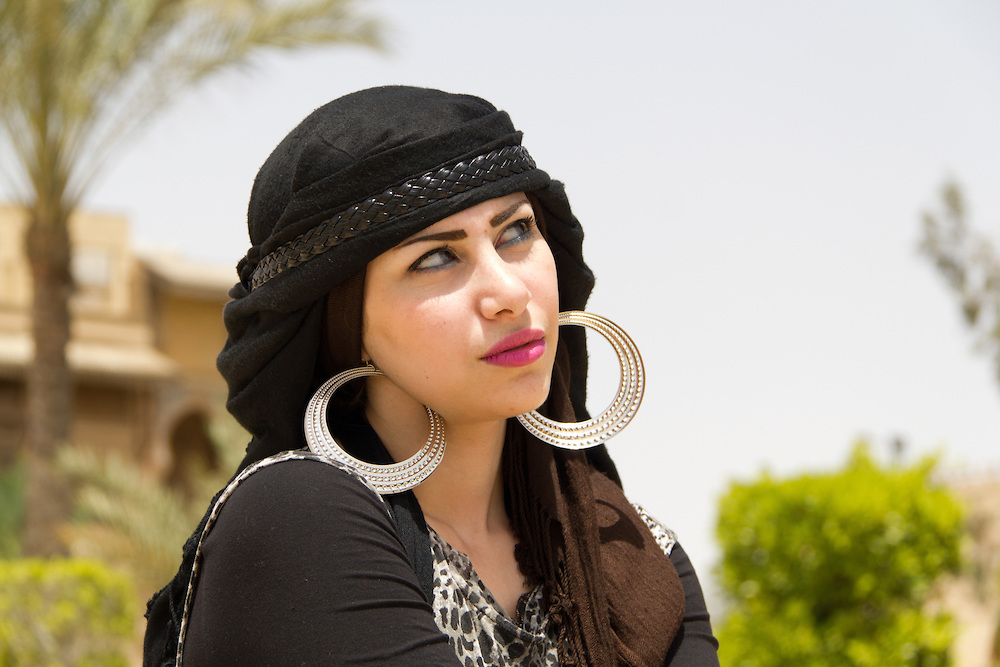Nearly five years ago, when Safaa* was 26 and a mother of two, she discovered that she had HIV (human immunodeficiency virus) – a disease which destroys the immune system of its host.

To her, this was worse than a death sentence – it would force her to keep her medical history secret from even her closest relatives for the rest of her life.
Fearing that her relatives would not accept the news of her infection, she managed to keep her secret for about a year and a half, until her third pregnancy gave her away. During that pregnancy Safaa was told by a nurse, “you should go die”, for conceiving a child while living with the virus. But this was just one of the many ordeals that Safaa has faced since she got the disease.
Safaa’s mother, father and brothers tried to be supportive but did little to hide their fear of infection. One of her brothers got into an argument with her over washing her clothes with her children’s, fearing they would contract the virus as a result, which is medically impossible.
HIV can be transmitted through unprotected sexual intercourse, transfusion of contaminated blood, sharing syringes and in some cases from mother to infant during childbirth or through breastfeeding, according to the World Health Organisation.
Nasser Hashem, the executive director of Roaya association which provides support for people living with HIV said, “people here base their judgments on preconceived ideas about the virus’s modes of transmission.”
Safaa, who believes she caught the virus from her husband, tried to explain to her brother that she would “definitely” never put the life of her virus-free children at risk but it was in vain.
Problems also escalated with her mother-in-law whose house she was living in. Eventually, Safaa and her children had to move out but Safaa is among many who had to leave their homes as they live with the stigma of having HIV in Egypt.
A survey conducted by the Egyptian Society for Population Studies and Reproductive Health (ESPSRH), an NGO that works with HIV patients, in 2013 shows that 21 percent of people living with HIV said they were forced to change their address or were unable to rent a place because of their HIV status. The survey included 529 people, of whom 160 were women.
Over 53 percent of women who revealed their HIV status were denied access to health services, according to the survey. While Safaa has not been denied access to health care, she nonetheless has seen enough stigma from doctors, especially during her third pregnancy that would eventually push her to “never” disclose her condition to any doctor ever again.
Safaa recalled many painful incidents during her third pregnancy. On the due date, she arrived at the hospital at 7am to have a C-section operation but she did not have it for almost 12 hours, when a doctor finally agreed to deliver her child.
In the operation room, Safaa requested anesthesia through her arms because she fears the syringe but one of the doctors responded by hitting her on the back telling her “if you do not like this, go have your operation outside of this hospital”.
Disregarding the privacy of their patient, nurses in the hospital regularly referred to her as “Safaa who has AIDS”.
“They called me that in front of the whole hospital,” she says.
Safaa decided that she’d had enough of this treatment and did not tell the doctors about the HIV during her fourth pregnancy. It scared Safaa to do so, but the fear that having the virus would put her at the risk of being completely denied access to health care, was far bigger
She also decided to never tell her children about her condition. Three of Safaa’s children are virus-free but the fourth, who was born a few months ago, has yet to be tested.
“I do not want to bring them shame,” she said. “I do not want to ruin their future and their prospects of getting married.”
HIV is inevitably coupled with stigma and discrimination in Egypt. The virus is notoriously linked with ‘immoral’ sexual behaviour such as infidelity, homosexuality and sex work, all of which are largely rejected and considered taboos in Egypt.
If a woman contracts the virus when she is married, her fidelity is often questioned.
Hashem said many people think that “a woman living with the virus is a woman who engaged in an illicit relationship.” This is the “default rule” which has become deeply entrenched in people’s mind regardless of their social status or education, he added.


5 Responses
This is ridiculously absurd.How can even doctors that call themselves experts be treating an Hiv patient like that knowing that it could be suicidal to the patient?
May God help our generation.why can’t people learn to show love to those people living with one disease or the other? All they need is love not to be stigmatized to death. And besides no condition is permanent
I am angry.Aaarrrrrrrgh! I wish I could get hold of that doctor that hit safaa on her back. What temerity? That doctor needs to be strip of his medical rights. Doctors ought not to treat their patient with so much disdain but rather treat them with love and revere.
HIV is not only cause by sex but can be transmitted via other means, my advice to every countries of the world is that they should stop tagging those living with the disease as infidels.
Stigmatization is not healthy for those living with the disease atall. And people living with Hiv should make their status known to the doctors on time so that treatment can commence with immediate alacrity.And doctors are supposed to alleviate their pains by counselling them, on the basis of hygiene and food intake.